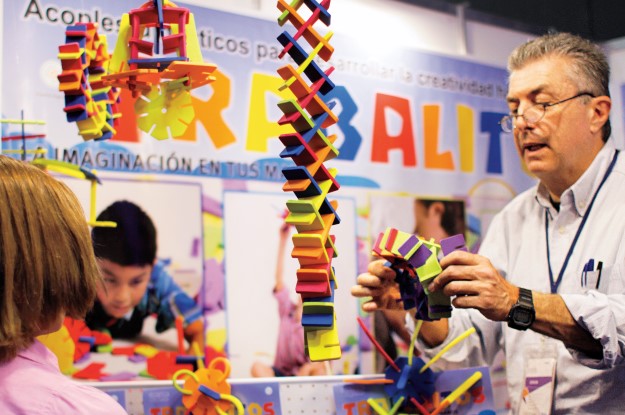This article is adapted from AQ’s print issue on piracy in Latin America. To see the rest of our list, click here. | Leer en español
From the age of 10, when he saw Ladislao José Biro, the Hungarian-Argentine inventor of the ballpoint pen, on television, Eduardo Fernández knew his destiny.
“I was fascinated,” he told AQ. And since then, he has been an inventor in love with the act of invention. He founded a school for young inventors in 1990, the Escuela Argentina de Inventores, is the president of the Argentine Inventors Forum, and is a consultant to, the World Industrial Property Organization (WIPO) in Switzerland.
Over his career, Fernández, now 63, has toyed with agricultural tools, sports gear and even an industrial-grade nut-peeling machine, all without any formal training. An autodidact, Fernández exudes enthusiasm and has a taste for thinking of things that could be improved or changed.
“I consider myself a professional inventor. When I see something that’s not working, I see a challenge to fix it and create something new,” he said.
Fernández’s most recent invention, developed with his colleague Nicolás Di Prinzio, is Trabalitos, educational foam toys that enable kids to invent and build other toys. It was awarded the gold medal at the 2018 International Inventions Exhibition in Geneva, Switzerland, but the path from concept to success was an arduous one.
“We solved the technical problem of creating the toy in just two hours, but it took over two years to get it to the market,” he said.
Fernández said that market research and deciding whether to pursue a patent took time and investment. The biggest challenge, he added, isn’t to invent something, but to turn that invention into a marketable product — that’s where most inventors fail.
“The patenting process in Latin America is expensive, slow and hard,” said Fernández. “In Argentina, it took us four and a half years to get the patent for Trabalitos. Some inventors have been waiting for over eight years.”
In the end, Fernández and his partners chose to take a patent only in the U.S., their largest market.
“Of course there is a risk for theft in other markets, but at least we are protected in the most important one. In other smaller markets, we chose to compete by quality and price.”
—
He is an Argentine journalist based in Buenos Aires








